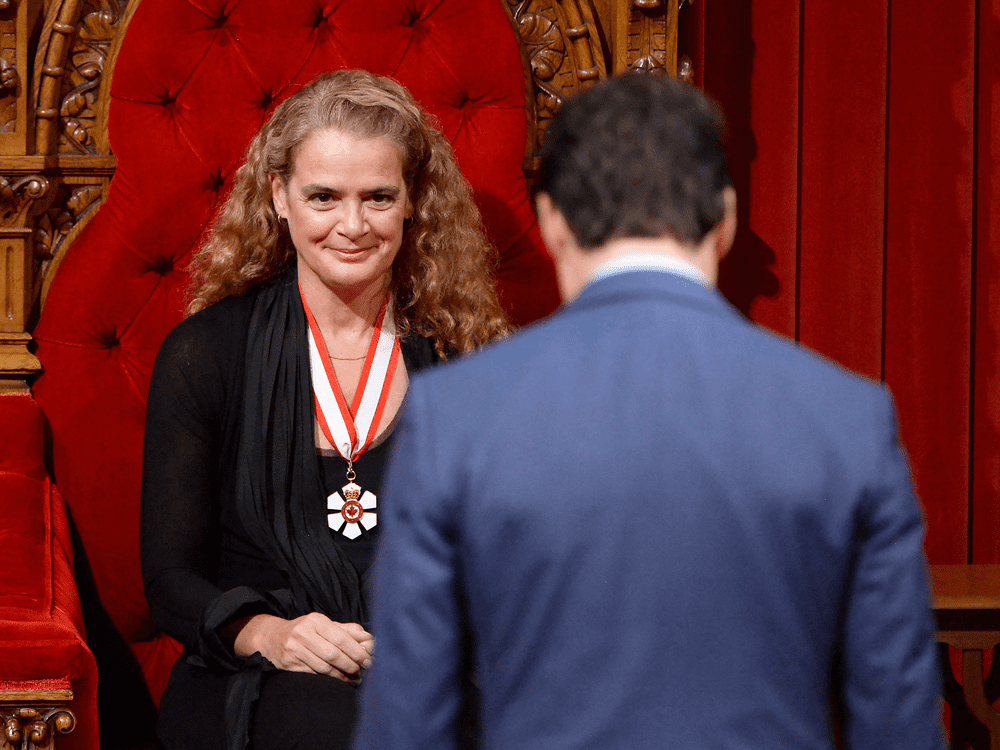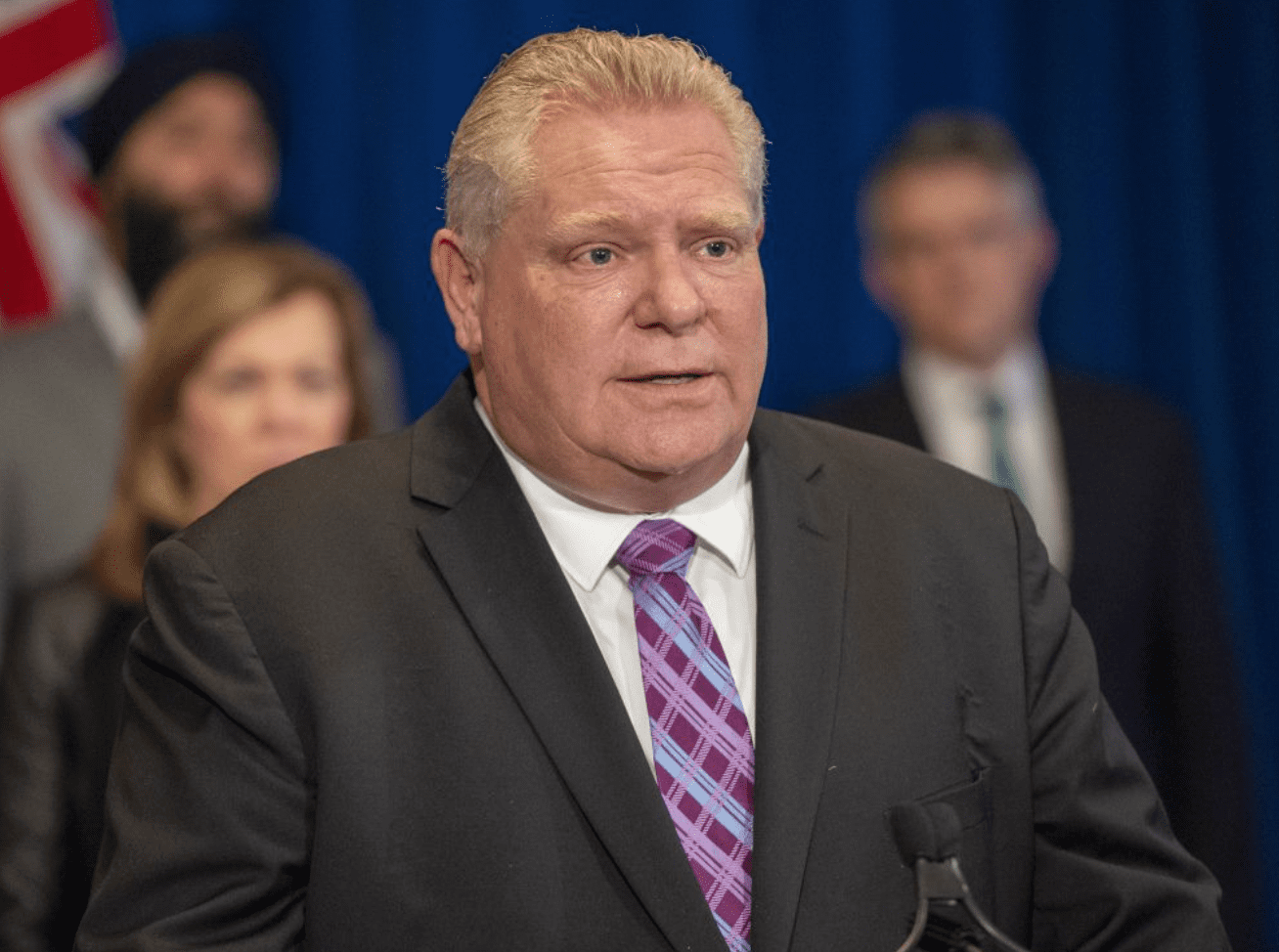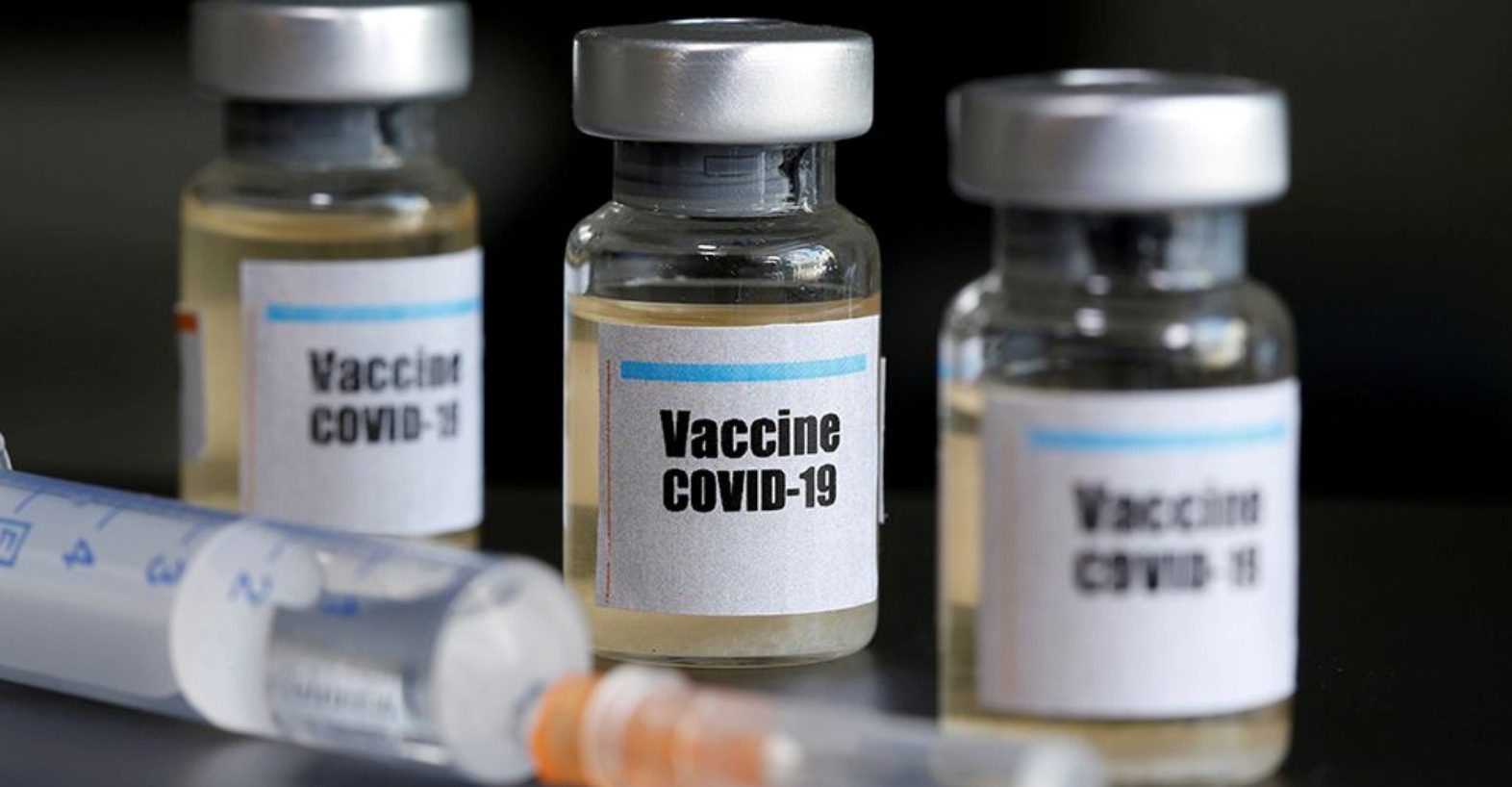This content is restricted to subscribers

The views, opinions and positions expressed by columnists and contributors are the author’s alone. They do not inherently or expressly reflect the views, opinions and/or positions of our publication.

This content is restricted to subscribers
The views, opinions and positions expressed by columnists and contributors are the author’s alone. They do not inherently or expressly reflect the views, opinions and/or positions of our publication.

No one is ever going to accuse Ontario Premier Doug Ford of engaging in silver-tongued rhetoric.
Case in point, when news emerged that Canada's shipment of anti-COVID Pfizer vaccines was going to be temporarily interrupted, he stated to the media, "Nothing is more important than getting these vaccines. If I was in his (Prime Minister Justin Trudeau's) shoes … I'd be up that [Pfizer] guy's ying yang so far with a firecracker he wouldn't know what hit him."
Colourful language, for sure, but it kind of makes him sound less like a statesman and more like a character from the Beverly Hillbillies, doesn't it? (Boomer reference: look it up.)
It's hard to imagine Winston Churchill, for instance, warning Hitler that he'd be up his "ying yang with a firecracker" if he invaded Poland.
But the fact is, political language ain't what it used to be.
And yes, at one time political leaders took great pride in exercising verbal eloquence.
In the classical world of Greece and Rome, for example, members of the ruling political classes were all educated in the art of rhetoric, they learned how to use words and reason and logic to persuade an audience.
As the Greek philosopher Aristotle put it, "public eloquence became a political indispensability."
Just check out the famous "Funeral Oration" delivered by the Athenian politician Pericles in the fifth century B.C., it offers what is still one of history's most impassioned and stirring defenses of democracy.
By the way, no record exists of him ever uttering the words "ying yang".
Political rhetoric also mattered in the 19th century.
In fact, one of the most important political encounters in American history was the Lincoln-Douglas debates of 1858, which saw Republican Abraham Lincoln spar with Democrat Stephen Douglas in a series of seven three hour (!) debates on the question of slavery.
It was Lincoln's dramatic mastery of language during those debates — "A House divided against itself cannot stand" — which cemented his reputation as a leading Republican and helped paved his way to the White House.
Canadian politicians in the 19th century also knew how to engage in soaring oratory.
As a matter of fact, I'd urge everyone to check out the book, Canada's Founding Debates, which presents excerpts from political debates on Confederation in the 1860s.
You'll find those debates were chock full of articulate, well-argued and cogent exchanges on issues ranging from responsible government to the nature of "British liberty."
Plus, John A. MacDonald, also knew how to turn a phrase, i.e. "A British subject I was born a British subject I will die. With my utmost effort, with my latest breath, will I oppose the 'veiled treason' which attempts by sordid means and mercenary proffers to lure our people from their allegiance."
So, what happened? Why does the language of today's politicians seem so pedestrian, so vapid, so banal, when compared to politicians from times of yore?
The answer, I think, is that society has changed.
For one thing, people nowadays have much shorter attention spans; not many of us today would sit through a three-hour political debate on policy.
Knowing this is the case, the media now demands short and concise answers.
Accordingly, politicians have to reach their audience quickly and concisely, making sure to get their points across in 15-20 second sound bites.
That doesn't leave a lot of room for clever word play or for eloquence or for rational arguments.
What's more, for many modern politicians success depends not on how they frame an argument, but on how voters perceive their personalities.
Hence, they use words, not to persuade, but to bolster their branding.
This brings us back to Doug Ford, a politician who cultivates the image that he's a tough guy.
So, to enhance his reputation, rather than spouting pearls of wisdom like Pericles or Lincoln, Ford mimics Hulk Hogan and publicly muses about sticking firecrackers up somebody's ying yang.
And if you think public discourse is in a sad state now, I've got bad news for you; the advent of social media will likely only make things worse.
Photo Credit: CBC News
The views, opinions and positions expressed by columnists and contributors are the author’s alone. They do not inherently or expressly reflect the views, opinions and/or positions of our publication.

When Prime Minister Justin Trudeau announced last Fall that Canadians would have to wait until 2021 to see the COVID-19 vaccination campaign begin in the country, the PMO quickly realised they had a problem on their hands.
Federal officials believed the first doses of the vaccine would arrive in Canada between January and March. Reassurances that Canada had purchased tens of millions of doses of vaccines, pleas to be patient and explanations about not having domestic vaccine production capacity were not cutting it: "Countries like the United States, Germany and the U.K. do have domestic pharmaceutical facilities which is why they're obviously going to prioritize helping their citizens first," said Trudeau in November.
"What really matters is when we get to cross the finish line. And the fact that the doctors highlighted that, if all goes according to plan, we should be able to have a majority of Canadians vaccinated by next September, puts us in very good stead," added Trudeau.
Opposition parties, Premiers and pundits pounced on Justin Trudeau and his government: Not good enough. Canadians seemed to agree, especially considering how Liberals were boasting about the different agreements with big pharma companies to make sure Canada was at the front of the line.
The backlash sent the Liberal government scrambling to save face. Within two weeks, Trudeau announced a first shipment of Pfizer's COVID-19 vaccine, Health Canada approved it and Canadians began receiving vaccinations on December 14th. It didn't really matter that the initial shipment was only 30,000 doses. What mattered was that Canada was kicking off its mass-immunization campaign, with pictures of Canadians being jabbed flowing in the media.
Reality soon resurfaced in early January, as other countries seemed to have done a better job at securing vaccines for their citizens. This week, Canada's supply is running dry, and local health authorities are announcing they have injected all available vaccines and have no timetable for their next shipments.
In fairness to the Trudeau government, to date, Canada is actually doing better than most countries in the world, when it came to vaccinating its population. Early in the new year, Canada was in the top 10. It remained in the top 15 until January 25th. At the time of writing, Canada had vaccinated 2.1% of its population and has fallen to 18th in the world.
Israël is in a class of its own, having vaccinated over 40% of its population, partly because Prime Minister Benjamin Netanyahu struck a deal with Pfizer, obtaining priority access for his fellow citizens in exchange for their medical data. Other countries that are miles ahead of Canada include the United Arab Emirates (25.1%), Seychelles (18.7%) and Bahrain (8.5%). Fellow G7 members United Kingdom (10.1%) and United States (6.2%) used their buying power and access to domestic production to also do better than Canada.
The Trudeau government has made many mistakes in the course of this pandemic. They were also caught off-guard by other countries acting faster, better, with more money and more perseverance. Nethanyahu called the Pfizer CEO 17 times before Justin Trudeau found the time to get Dr. Albert Bourla on the line. Could it have made a difference? Probably.
The truth is, there is a worldwide supply problem. Some countries acted early, some countries paid more money, some countries made side-deals. But let's be clear: that is all happening at the expense of poorer countries. According to Oxfam, countries representing 14% of the world's population bought 53% of the vaccines.
As a possible solution, the World Trade Organization received a petition from ninety-nine members calling for intellectual property exemptions to waive rules regarding patents, in order to allow more equitable distribution and increased production of vaccines, at least until the World Health Organization declares the end of this pandemic. The idea has been rejected twice, Canada being one of the rich countries opposed to this exemption.
This pandemic has created a new type of nationalism, the vaccine nationalism. All politics are local and rich governments around the world are trying to win the vaccination race. This race is a reality check in the face of the "We are all in this together" sloganeering. Canada is (for now) ahead of 177 countries in the world. It might be mediocre for some, but I suspect that Burkina Faso, Haiti and Moldavia would quickly trade places with Canada.
Yet, there is a collective hysteria setting in that Canada is failing. "Canadians used to be a world leader! The best country in the world! Canada's rollout is mediocre!" And so on and so forth. There is no question that the longer the rollout takes, the more Canadians will get sick, and the more will die. Yet despite the current delay, Canada is doing better than industrialized countries such as Germany, France, Japan, Sweden and Switzerland. China, India and Russia are far behind, too. Canada is doing better than all of continental Africa, all of South America, all of Oceania. But that is not good enough for Justin Trudeau. Because politically, the life of a Canadian is worth more than the life of anyone else.
Photo Credit: BBC
The views, opinions and positions expressed by columnists and contributors are the author’s alone. They do not inherently or expressly reflect the views, opinions and/or positions of our publication.